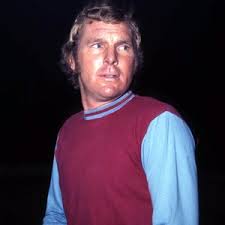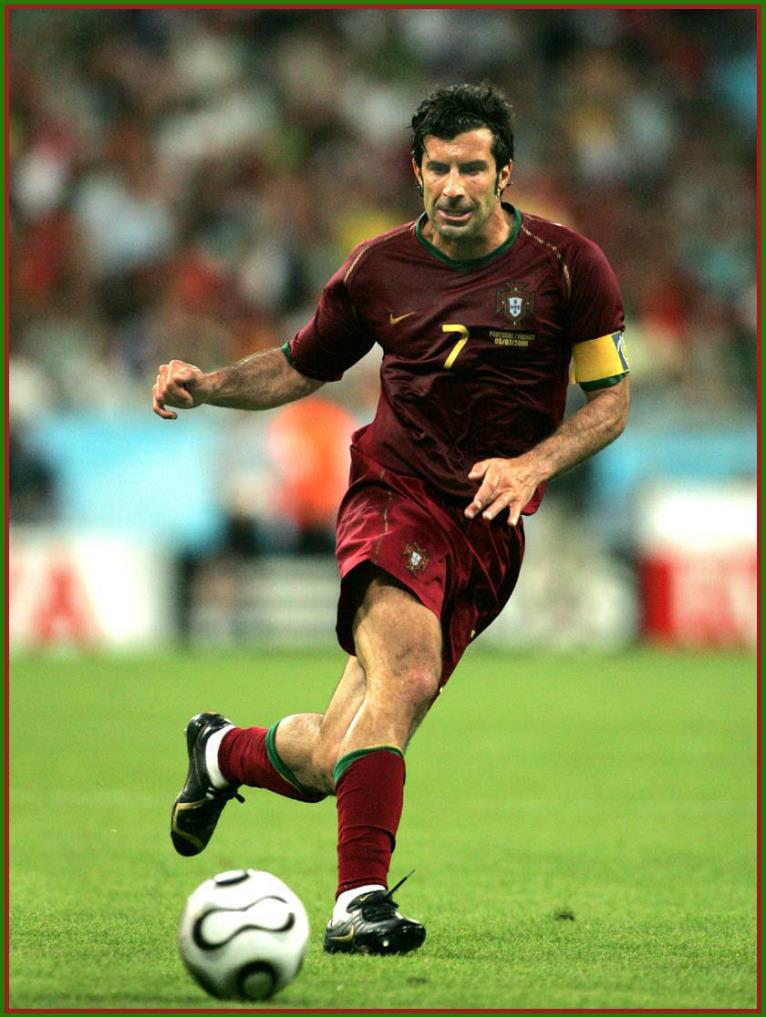
116. Luís Figo
After finishing third in the 1966 World Cup, Portugal struggled to recapture those heights until their 'golden generation' of players broke through in the 1990s. One of the leading lights of that team was inspirational midfielder Luís Figo. Figo started his career as a teenager in Lisbon with Sporting, and quickly broke into the national team, making his debut shortly before his 19th birthday. His performances for Sporting and for Portugal attracted the attention of clubs across Europe. After a dispute between clubs chasing his signature he eventually moved to Spain, and to Barcelona.
In his first season in Spain, Barcelona narrowly failed to win any silverware after losing in the cup final, but later that summer Figo appeared in his first international tournament at the European Championships in England. Having qualified for the Cup Winners' Cup as runners-up, Barcelona went on to win that trophy in 1997 as well as going one better in the Spanish Cup itself. Figo claimed his first league title in 1998, as part of a league and cup double, and the title was retained the following year. There had been disappointment at Portugal's failure to reach the World Cup in 1998, but two years later Figo led the national team to the last four of the European Championship.
The summer of those championships brought huge controversy, as Figo agreed a world record transfer to Barcelona's fierce rivals Real Madrid, a move which was very unpopular with Barcelona fans. Winning the Ballon d'Or later that year, he helped Real to win the league title in 2001, with his performances earning him the World Footballer of the Year award. In 2002, he got his hands on the European Cup for the first time as Real beat Bayer Leverkusen in the final, and also appeared at his first World Cup although Portugal suffered a shock early exit after defeats by the USA and South Korea.
After another Spanish title with Real in 2003, Figo's best chance to win an international tournament would come in the European Championships of 2004, on home soil. Despite an opening game defeat to Greece, Portugal went all the way to the final where they would meet the same opponents again. To the frustration of the home crowd, Greece earned a 1-0 victory and after the tournament Figo announced his retirement from international football. However, this was a decision that he would later reverse during the qualifying tournament for the 2006 World Cup.
Figo left Spain in 2005 to join Inter Milan, where in his first season he helped the club to win the Italian Cup and later to be confirmed as double winners, when they were awarded the league title following Juventus' punishment in the 2006 match-fixing scandal which rocked Serie A. 2006 also brought Figo his second appearance in the World Cup, a more successful tournament than four years earlier as Portugal reached the last four, losing narrowly to France. After the tournament, Figo finally did retire from international football with a record number of caps for Portugal. Domestic success continued with three more consecutive Serie A title with Inter, before in 2009 he finally brought his career to an end at the age of 36.
Legendary Football Players - Luis Figo

Search My Football Facts & Stats
Web site designed & hosted by Paul Yarden © 2013 at Homestead™